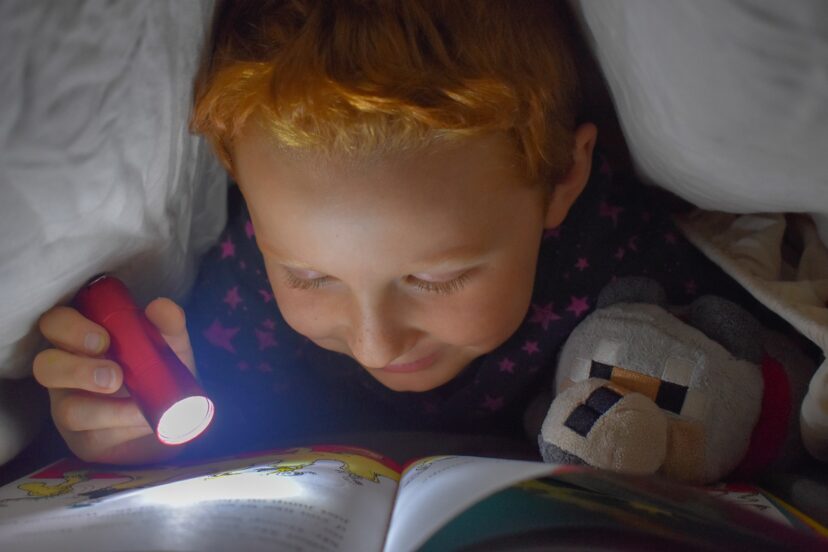How Does Gaming Affect Sleep? 26 Things to Beware of
How does gaming affect sleep? It’s a question that has likely crossed the minds of many avid gamers who find themselves engrossed in virtual worlds well into the night. You’re not alone if you’ve traded sleep for just one more level, one more match, or one more quest.
While the thrill of gaming can be addictive, it’s important to consider its impact on something equally crucial—your sleep. In this comprehensive article, we’ll dissect the intricate relationship between gaming and sleep.
We’ll look into scientific studies and expert opinions to understand how late-night gaming sessions can influence the quality and duration of your slumber. Whether you’re a casual gamer or a dedicated esports athlete, understanding the effects of gaming on your sleep could be a game-changer for your overall well-being. So, let’s navigate through the captivating maze of gaming and its potential impact on your precious rest.
How Does Gaming Affect Sleep: Physical Effects
Impact on Melatonin Production
One of the most immediate physical effects of gaming on sleep is the impact it has on melatonin production. Melatonin is often referred to as the “sleep hormone,” as it plays a vital role in regulating your sleep-wake cycle. This hormone is naturally produced by the pineal gland and its release is significantly influenced by light exposure. When you are gaming, especially during nighttime hours, the bright screens and artificial light from your gaming setup can suppress the natural production of melatonin in your body. Reduced levels of melatonin can make it harder for you to feel sleepy, subsequently making it difficult to fall asleep or maintain a deep sleep. For those looking to mitigate this impact, consider reducing screen brightness, using blue light filters, or stopping gaming activities at least an hour before bedtime to allow your melatonin levels to normalize.
Effect on Circadian Rhythm
Your body’s internal clock, or circadian rhythm, is another important factor that can be disrupted by gaming. The circadian rhythm is an internal 24-hour clock that runs in the background of your brain, cycling between sleepiness and alertness at regular intervals. Gaming for extended periods, especially late into the night, can send conflicting signals to your internal body clock. The engagement and stimulation provided by gaming can trick your body into thinking it needs to be awake and alert when it should actually be preparing for sleep. This disruption can lead to irregular sleep patterns, including difficulty in falling asleep and waking up. It may also affect the quality of sleep you get, leaving you feeling less rested and refreshed the next day.
Increased Body Temperature
Another physical aspect to consider is the increase in body temperature that can occur during intense gaming sessions. A heightened body temperature is contrary to what the body needs for sleep; as we wind down for the night, our body temperature naturally decreases as a signal for sleep readiness. The physical and mental arousal that comes from gaming can increase your body temperature, thus hindering your ability to fall asleep and stay asleep. This is particularly significant because higher body temperature can also reduce the percentage of REM (Rapid Eye Movement) sleep you experience, which is a crucial aspect of a restful night’s sleep.
Musculoskeletal Issues
The physical posture adopted during gaming also deserves attention. Sitting for extended periods in the same position can lead to a variety of musculoskeletal issues. These may include neck and back pain, shoulder stiffness, and even issues like carpal tunnel syndrome. Physical discomfort not only affects your gaming performance but also translates into difficulty while trying to sleep. The pain and stiffness can make it challenging to find a comfortable sleeping position, and muscle tension can prevent you from relaxing fully, both of which can reduce sleep quality. To mitigate this, it’s advisable to take regular breaks during gaming, perform stretching exercises, and pay attention to the ergonomics of your gaming setup.
Understanding these physical effects can be the first step in managing how gaming affects your sleep. The key is to be mindful of your gaming habits and their impact on your body’s natural sleep processes and to make adjustments where necessary to ensure a restful night’s sleep.
How Does Gaming Affect Sleep: Psychological Effects
Stimulation and Alertness
The mental workout gaming provides isn’t too different from a rigorous physical exercise session in terms of the psychological impact on your ability to sleep. The level of stimulation and alertness generated by gaming, especially games that are fast-paced or strategy-intensive, can make it difficult for your mind to transition into a state of rest. Think of it like revving a car engine—once you turn off the ignition, the engine doesn’t immediately cool down. Similarly, your mind continues to whirl, processing in-game strategies, actions, and outcomes, making it hard to calm down when it’s time to sleep. This heightened mental activity can delay your body’s transition into the sleep state, impacting not only how quickly you fall asleep but also the quality of sleep you get. To mitigate this, consider engaging in calming activities like reading or meditating to help wind down your mind before sleep.
Increased Arousal and Excitement
The psychological arousal linked with gaming goes beyond mere stimulation. Many games have a competitive element that can induce adrenaline and excitement, even more so if you’re playing against other human players. This state of arousal can leave you mentally ‘buzzed,’ making it difficult to relax and fall asleep. It’s as though your psychological state is still in ‘game mode,’ wired for action and alertness. This can result in tossing and turning as you struggle to disengage and quiet your mind. Creating a ‘buffer zone’ of calm activities between gaming and bedtime may help you shift from a state of excitement to one more conducive to sleep.
Mental Stimulation and Engagement
Gaming isn’t just about action and competition; it’s also a mentally engaging activity that can captivate your imagination and cognitive faculties. From intricate game mechanics to complex strategies, your brain is constantly working while gaming. While this mental engagement can be intellectually satisfying, it also means that your brain continues to process this information even after you’ve stopped playing. You might find yourself contemplating game strategies or potential scenarios, which can prevent you from achieving the mental stillness needed for sleep. It may be beneficial to set a cut-off time for gaming and engage in less stimulating activities as you approach bedtime, to allow your mind time to disengage and prepare for sleep.
Escapism and Delayed Bedtime
The immersive worlds offered by video games can act as a refuge from the pressures and stresses of daily life, a form of digital escapism. While this can be therapeutic to some extent, it also poses the risk of losing track of time. You might find yourself staying up later than intended, absorbed in the game and disconnected from real-world commitments like a healthy sleep schedule. This not only reduces the duration of your sleep but can also compromise the quality, leading to a cycle of fatigue and poor performance—both in-game and out. To counter this, consider setting alarms to remind you when it’s time to start wrapping up your game and preparing for bed, and try to stick to a consistent sleep schedule.
Understanding the psychological effects of gaming on sleep is the first step towards mitigating its negative impacts. Creating a balanced routine that allows time for gaming while also prioritizing quality sleep can help you enjoy the best of both worlds.
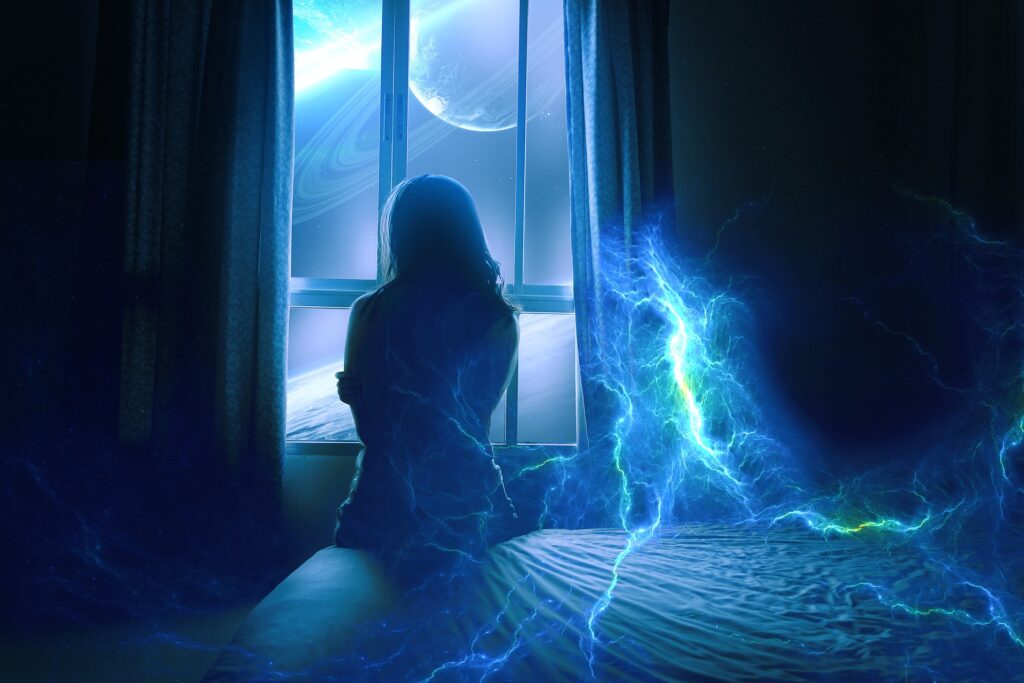
How Does Gaming Affect Sleep: Social Effects
Gaming with Friends and Sleep Deprivation
While gaming can be a solitary experience, for many, the real joy comes from the social interactions it facilitates. Multiplayer games allow you to team up with friends or compete against them, adding an additional layer of excitement and engagement. However, this social dimension of gaming can also be a double-edged sword when it comes to sleep. Because you’re not just accountable to yourself but also to your teammates or friends, you may feel compelled to extend your playtime, often at the expense of much-needed rest. The camaraderie and social commitments can override your body’s natural cues for sleep, nudging you towards a state of sleep deprivation. Extended gaming sessions, especially those that stretch into the wee hours, can significantly reduce your total sleep time, impact the quality of your sleep, and affect your performance the next day, both in the game and in real-life activities.
Online Gaming and Extended Playtime
The world of online gaming offers a virtually endless landscape of opportunities and challenges, making it incredibly easy to lose track of time. Unlike single-player games where you can pause and resume at your leisure, online games often involve real-time interactions with players from various time zones. This constant availability of interactive gameplay can make it exceptionally challenging to set boundaries. The endless cycle of just “one more game” can quickly turn into hours, cutting into your valuable sleep time. Moreover, the unpredictable nature of multiplayer games—where an early exit could let your team down or affect your rankings—creates a form of social pressure to continue playing, further exacerbating sleep deprivation.
Consequences of Social Interaction on Sleep Patterns
While social interactions in gaming can enrich the experience and even contribute to your emotional well-being, they can also have unintended consequences on your sleep patterns. Late-night conversations in the gaming lobby, discussing strategies with teammates, or even post-game celebrations and commiserations can all contribute to a delayed bedtime. The sense of community, while generally positive, can lead you to compromise your sleep schedule. A delayed bedtime doesn’t just result in fewer hours of sleep; it can also shift your entire sleep cycle, causing you to wake up later and thereby perpetuating a vicious cycle of irregular sleep patterns.
Recognizing the social pressures that may compromise your sleep is crucial. Setting clear boundaries, such as a fixed end-time for gaming sessions or using software features that remind you to take breaks, can help. Maintaining a balance between the social joys of gaming and the physiological and psychological needs for sleep isn’t easy, but it’s essential for long-term health and well-being.
Addictive Nature of Gaming and Sleep Disorders
Gaming Addiction and Insomnia
For some individuals, gaming can become addictive, leading to sleep issues such as insomnia. Gaming addiction can consume a significant amount of time and attention, making it difficult to prioritize sleep. The constant desire to keep playing, coupled with the mental and emotional disturbances that can arise from addiction, can disrupt the sleep-wake cycle and lead to insomnia.
Gaming Disorder and Sleep Disturbance
The World Health Organization recognizes gaming disorder as a legitimate mental health condition that can have a significant impact on various aspects of life, including sleep. Gaming disorder, characterized by impaired control over gaming activities and prioritizing gaming over other essential activities, can cause significant sleep disturbances. The preoccupation with gaming and the resulting neglect of sleep can lead to excessive daytime sleepiness, sleep deprivation, and overall poor sleep quality.
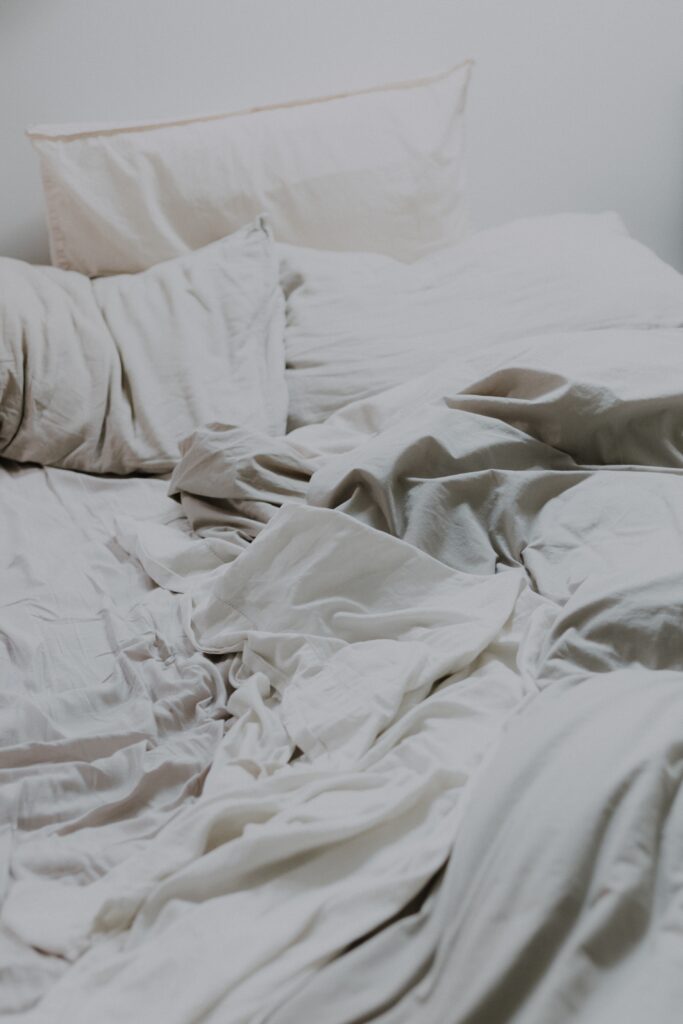
Blue Light Exposure and Sleep Disruption
Impact of Blue Light on Sleep Quality
The screens of gaming devices emit blue light, which can interfere with your sleep quality. Exposure to blue light in the evening and nighttime can suppress melatonin production, interrupt your sleep-wake cycle, and make it more challenging to fall asleep. The artificial stimulation caused by blue light can disrupt your body’s natural sleep rhythms and negatively impact the overall quality of your sleep.
Role of Blue Light in Delayed Sleep Onset
Blue light exposure before bed can delay the onset of sleep by suppressing melatonin levels and increasing alertness. A delayed sleep onset can lead to shorter sleep duration, reduced sleep efficiency, and increased daytime sleepiness. Limiting your exposure to blue light in the hours leading up to bedtime can help regulate your sleep-wake cycle and promote more timely and restorative sleep.
Ways to Minimize Blue Light Exposure
To minimize the adverse effects of blue light on your sleep, consider implementing the following strategies:
- Use blue light filters or apps that adjust the screen’s color temperature to eliminate or reduce the amount of blue light emitted.
- Limit your exposure to screens, especially in the final hours before bed.
- Dim the brightness of your devices or use nighttime mode features.
- Consider wearing blue light-blocking glasses that filter out blue light and promote better sleep.
How Does Gaming Affect Sleep: Sleep Duration and Quality
Shortened Sleep Duration
Engaging in gaming activities for extended periods can lead to a reduction in overall sleep duration. The time spent gaming often cuts into the recommended amount of sleep, leaving you with fewer hours of rest. Consistently shortened sleep duration can result in cumulative sleep debt, which can have detrimental effects on your cognitive function, mood, and overall well-being.
Elevated Sleep Latency
Sleep latency refers to the amount of time it takes for you to fall asleep. Gaming, particularly when done close to bedtime, can increase sleep latency and make it more difficult for you to transition into sleep. The mental stimulation, excitement, and arousal from gaming can keep your mind active and alert, delaying the onset of sleep and resulting in increased sleep latency.
Reduced Sleep Efficiency
Sleep efficiency refers to the percentage of time you spend asleep while in bed. Gaming before bed can reduce sleep efficiency by cutting into your sleep time or causing sleep disruptions. The stimulating and engaging nature of gaming can lead to restless and fragmented sleep, resulting in reduced sleep efficiency. It is important to prioritize activities that promote relaxation and create an optimal sleep environment to improve sleep efficiency.
Disrupted Sleep Architecture
Regular gaming before bed can disrupt the various stages of sleep, including rapid eye movement (REM) sleep and slow-wave sleep (SWS). REM sleep is essential for cognitive function, memory consolidation, and emotional regulation, while SWS is responsible for physical restoration and recovery. Disruptions in these sleep stages due to gaming can lead to difficulties with concentration, mood disturbances, and decreased overall sleep quality.
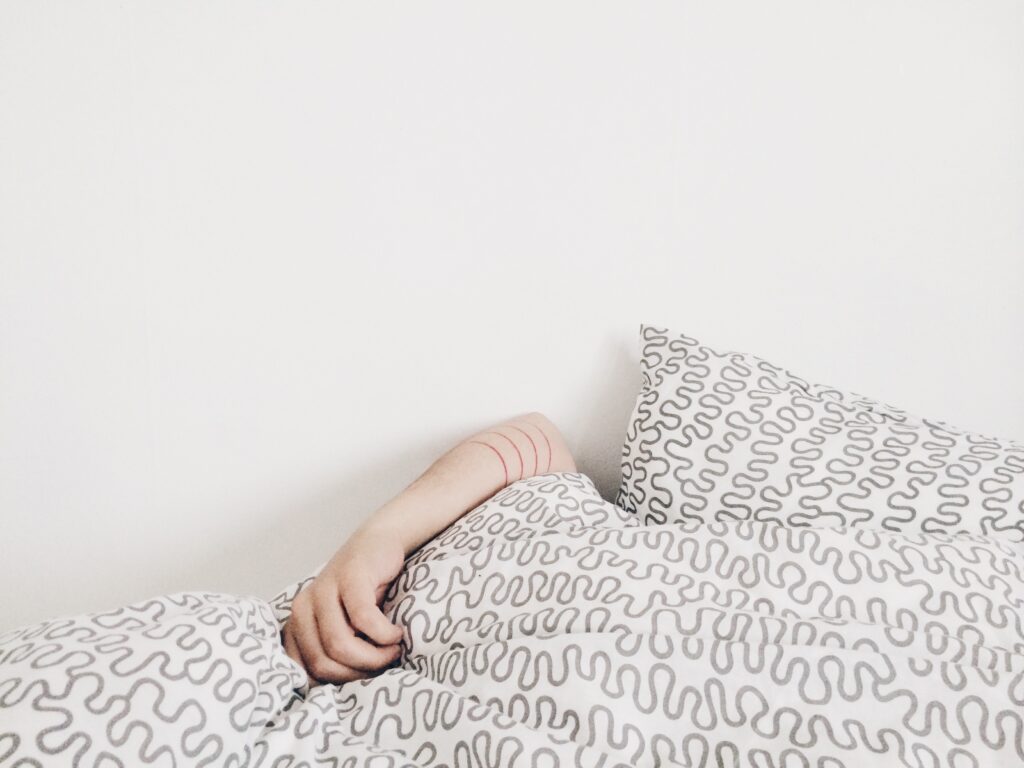
How Does Gaming Affect Sleep: Sleep Routine and Bedtime Habits
Altered Bedtime Habits
Engaging in gaming activities can lead to altered bedtime habits. Late-night gaming sessions can extend into the late hours of the night, causing a delay in your bedtime routine. Disrupted sleep routines can make it challenging for you to maintain a consistent sleep schedule, leading to difficulties falling asleep and waking up at desired times.
Irregular Sleep Schedule
Gaming and its associated sleep disruptions can result in an irregular sleep schedule. Going to bed and waking up at different times each day can throw off your body’s natural sleep rhythm, making it harder to fall asleep and wake up feeling refreshed. Establishing and maintaining a consistent sleep schedule can help regulate your sleep-wake cycle and improve the quality of your sleep.
Neglecting Sleep Hygiene Practices
Gaming can often lead to neglecting essential sleep hygiene practices. When engrossed in gaming, you may forget to engage in wind-down activities, practice relaxation techniques, or create a sleep-friendly environment. Neglecting these important sleep hygiene practices can contribute to sleep difficulties and poor sleep quality.
Preventing Sleep Issues Related to Gaming
Establishing Boundaries and Time Limits
To prevent sleep issues related to gaming, it is crucial to establish boundaries and time limits. Set specific periods of time for gaming, allowing for ample time for relaxation and winding down before bed. Creating a schedule and sticking to it will help regulate your sleep patterns and ensure that gaming does not encroach upon your sleep time.
Creating a Pre-sleep Routine
Developing a pre-sleep routine can help signal to your body that it is time to wind down and prepare for sleep. Engage in activities that promote relaxation and create a peaceful atmosphere, such as reading a book, taking a warm bath, or practicing mindfulness exercises. Establishing a consistent pre-sleep routine will aid in transitioning your mind and body into sleep mode.
Promoting Healthy Sleep Environment
Creating a sleep-friendly environment is essential for quality sleep. Make sure your bedroom is conducive to sleep by keeping it cool, dark, and quiet. Remove any distractions, including gaming devices, from the bedroom to eliminate the temptation to game before bed. Investing in a comfortable mattress, pillow, and bedding can also contribute to your overall sleep quality.
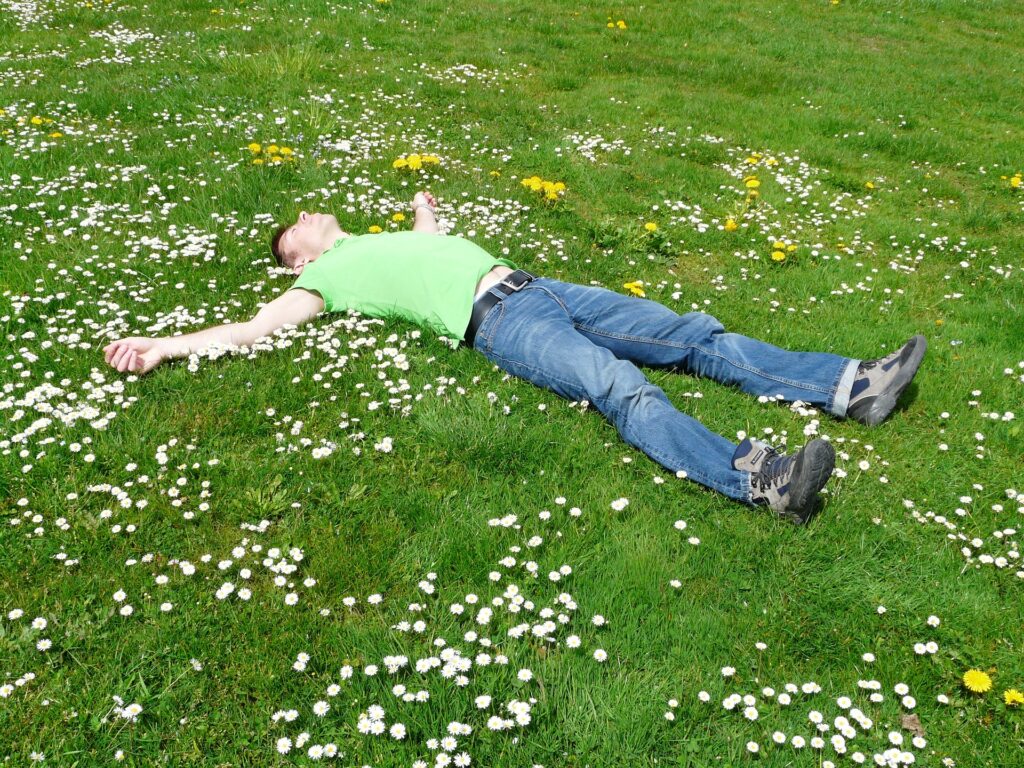
Coping Strategies for Gaming-Related Sleep Problems
Relaxation Techniques and Wind-down Activities
If you find it challenging to unwind after gaming, incorporating relaxation techniques and wind-down activities into your routine can be helpful. Practices such as deep breathing, meditation, or gentle stretching can help calm your mind and prepare your body for sleep. Experiment with different techniques and find what works best for you to promote relaxation before bedtime.
Managing Gaming Addiction
If you suspect that you or someone you know may be struggling with gaming addiction, it is important to seek support and professional help. Gaming addiction can have severe consequences, including sleep disturbances. Reach out to mental health professionals or support groups specializing in gaming addiction to explore treatment options and develop healthier habits.
Seeking Professional Help
If gaming-related sleep problems persist or significantly impact your daily life, seeking professional help from a sleep specialist or therapist can be beneficial. These professionals can assess your sleep patterns, provide personalized recommendations, and offer interventions to address gaming-related sleep issues. They can also address any underlying concerns such as gaming addiction or mental health conditions that may be contributing to sleep problems.
How Does Gaming Affect Sleep: Conclusion
Recognizing the impact of gaming on sleep is crucial for maintaining a balanced approach to both leisure activities and restful sleep. The physical, psychological, and social effects of gaming can disrupt your sleep patterns, leading to sleep deprivation, poor sleep quality, and an overall decline in well-being.
By being mindful of the potential negative impacts of gaming on sleep, establishing boundaries, and implementing healthy sleep practices, you can create a more harmonious balance between your gaming interests and quality sleep. Remember, promoting a balanced approach to gaming and sleep is essential for optimal health and well-being.


